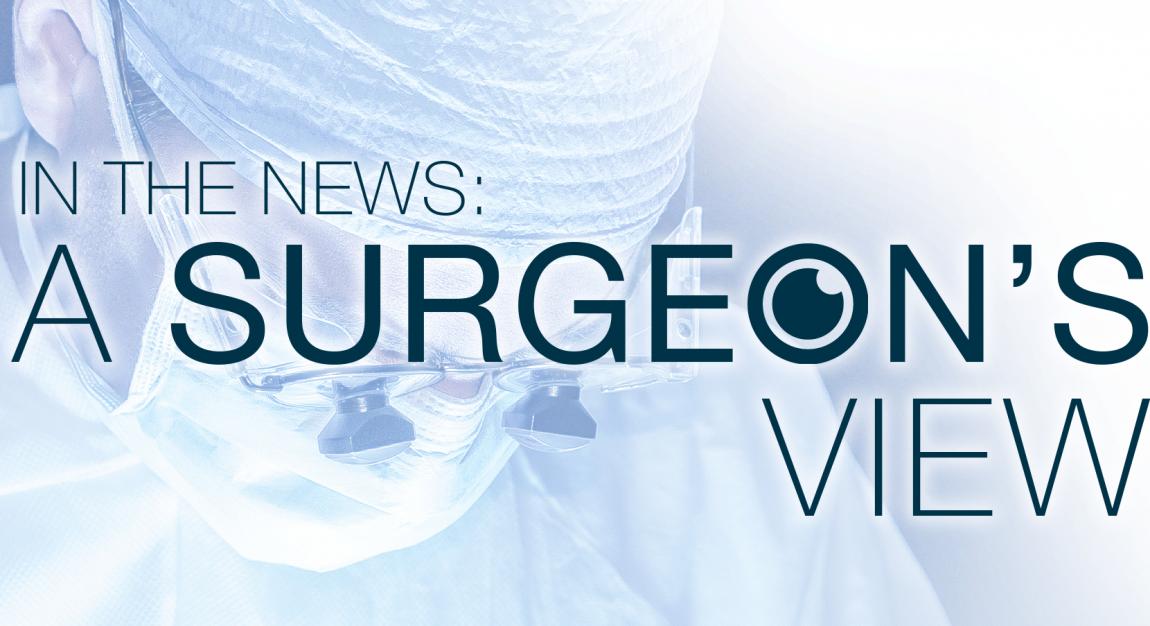- Declines in cognitive and psychomotor performance can occur anywhere between the ages of 40 and 75, with the most consistent appearance between 60 and 65 years.
- Survey respondents expressed a need to consider objective assessment of senior surgeons, with an organized plan for transition to nonclinical roles for those in whom the effects of aging compromise performance.
- Every single aspect of delivery of safe and effective care for a patient will likely become reported, including individual surgeon performance.
On May 15, 2019, the article, “Planning for the Senior Surgeon: Guidance and Recommendations From the Society of Surgical Chairs” (Todd K. Rosengart, Gerard Doherty, Robert S.D. Higgins, et al.), was published in JAMA Surgery.
Dr. Tom Varghese describes the article findings, what they mean for the cardiothoracic surgery specialty, and his view on the topic of the aging surgeon.
The Aging Surgeon’s Performance
There are three constants in life. You are born. You will age. You will die. As we age, there is an associated effect on cognition and motor function. If you are human, this will happen.
In the world of surgery, there is a natural tension between two forces:
- Surgical expertise takes time to attain
- As a surgeon gets older, the aging process may affect surgical skill
The Society of Surgical Chairs (SSC) recently embarked on a brave effort to deep dive into the evidence and attempt to reach a consensus on how to approach the subject of senior surgeons. And make no mistake about it – they are indeed brave. This topic brings about the most passionate of debate, with people on both sides of the issue:
Yes – Tons of evidence exist about the invariable decline in cognitive and technical skills as you age and, hence, make testing and consideration of retirement age mandatory.
No – This is age discrimination and a mechanism for hospital systems to save money by forcing out expensive older surgeons and replacing them with more affordable younger surgeons.
The SSC, in addition to the evidence review, convened a panel session as well as surveyed its membership (185 surgery department chairs across the US).
Evidence in Review
- Declines in cognitive and psychomotor performance can occur anywhere between the ages of 40 and 75, with the most consistent appearance between 60 and 65 years.
- Wide variation exists about the rate and timing of decreased performance.
- A mandatory retirement age was abolished by Congress in 1986, but exceptions are made for professions that are considered perilous or have high demands on physical and mental skill.
- There is uncertainty with what to do with aging surgeons.
Survey Results
- A majority of respondents recommended age 65 as a cutoff for the definition of senior surgeon.
- There is no doubt about a need to consider objective assessment of senior surgeons, with an organized plan for transition to nonclinical roles for those in whom the effects of aging compromise performance.
CT surgery is one of the most technically, cognitively, and physically demanding fields. CT surgeon performance does correlate with patient outcomes, so this issue needs to be addressed in our field.
Thomas K. Varghese Jr., MD, MS
The training to become a cardiothoracic surgeon is lengthy (on average 7 to 10 years after graduating medical school) and rigorous. Workforce studies have shown that the median age of a practicing CT surgeon in North America is 55 years. The average life span in the US is 81 years. Historically, CT surgeons have continued to operate into their 70s. However, CT surgery is one of the most technically, cognitively, and physically demanding fields. CT surgeon performance does correlate with patient outcomes, so this issue needs to be addressed in our field.
In my opinion…
Change is coming, whether we like it or not. Public reporting of an individual’s clinical outcomes will become a reality, and there is no question that CT surgery will be among the first to be required to do so across the nation. In both the states of New York and Massachusetts, this is already the norm for cardiac surgeons.
Every single aspect of delivery of safe and effective care for a patient will likely become reported, including individual surgeon performance.
What we don’t know:
- Does the aging process affect skills for technically demanding fields such as CT surgery sooner or later than other surgical specialties?
- Should objective assessments be performed on an ongoing basis throughout a CT surgeon’s career, so that the earliest decline in performance can be identified?
- Are there opportunities for surgeons to enhance their performance to delay the aging process effect?
We as a specialty have a lot of work to do. And, yes, we in the specialty need to embrace the opportunity.
Thomas K. Varghese Jr., MD, MS, heads the Section of General Thoracic Surgery, is the program director of the Cardiothoracic Surgery Fellowship, and is the chief value officer at the Huntsman Cancer Institute at the University of Utah. He is the Deputy Editor of Digital Media and Digital Scholarship for The Annals of Thoracic Surgery and holds leadership positions in The Society of Thoracic Surgeons, the American College of Surgeons, the Thoracic Surgery Directors Association, the Society of University Surgeons, and the Surgical Outcomes Club.
